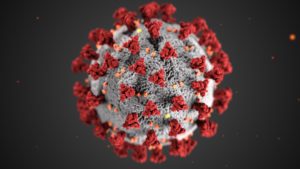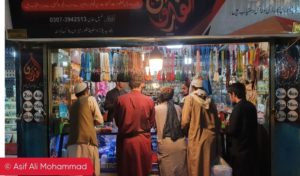Naumana Suleman
The world battles COVID-19 as we continue to lose lives and live under constant fear. While the pandemic has posed an immense challenge to our world, sometimes misfortunes can be turned into opportunities and something new may emerge from the crisis. Apart from wreaking havoc, the virus has taught us two lessons: That we are all are connected in one way or another and that nature does not discriminate among human beings on any ground.
In Pakistan, the challenge of COVID-19 can be seen as an opportunity to initiate elimination of all forms of discrimination and stigmatization from our society and replace it with the human rights’ principles of non-discrimination and equality among the citizenry.
In the time of COVID-19 crisis every state of the world needs and expected to uphold human rights more than ever before and same is the case for Pakistan. As the ultimate responsibility to respect, protect and fulfill human rights of the citizens is with the state. While masses of the different countries are feeling a mix of fear, anger and vulnerability, states’ response can either decrease or increase it.
One can argue that it’s an emergency and states are not responsible for COVID-19, of course, they are not, but they are responsible for how they deal with it. Therefore, upholding rights in the pandemic is of an utmost importance, particularly of those communities who are already marginalized.
For instance, if state’s policies and measures during the epidemic curtail citizens’ rights and freedoms unfairly, it is a human rights violation.
Although everyone is suffering during this pandemic in one form or another, marginalized and vulnerable communities suffer more than anyone else. This suffering enhances when one vulnerability is coupled with another. The poor people of the country suffer more than the affluent ones, however, if they happen to be poor and from a minority community too, especially from the religious minorities their jeopardy increases rapidly on account of their religion or belief.
During the last two month, there have been several reports of faith-based discrimination across South Asia particularly related to services amid COVID-19. Reports suggest that people are being discriminated against during food package relief on the basis of their religion or faith. But then there are some good people helping ensuring the religious minorities are not left in the lurch.
Therefore, it ssolely depends on the good will or perception of the person or the organization when it comes to the question of providing relief to all in need without any discrimination. Government must ensure that Pakistan’s minority citizens are not treated unfairly.
It is Pakistan’s legal obligation to ensure non-discrimination and equality among its citizens under the Constitution of Pakistan and International Human Rights Law. Articles 20 and 25 of the Constitution of Pakistan, guarantee freedom of religion and equality among citizens, respectively.
Likewise, these principles are enshrined in the International Human Rights Treaties to which Pakistan is a state party particularly under article 2 of the International Covenant on Civil and Political Rights (ICCPR), article 2 (2) of International Covenant on Economic Social and Cultural Rights (ICESCR) and International Convention on the Elimination of all forms of Racial Discrimination call upon the state parties to end discrimination on any ground and ensure equality among the masses.
In addition, the Universal Declaration of Human Rights, UN Declaration on the Rights of Persons Belonging to National or Ethnic, Religious and Linguistic Minorities and UN Declaration on the Elimination of All Forms of Intolerance and of Discrimination Based on Religion or Belief also call for equality and non-discrimination among citizens, and as member state of UN Pakistan has an obligation to fulfill its commitments and uphold human rights.
The COVID-19 challenge has brought an opportunity for each country of the world, specially for Pakistan to strengthen the notions of equality and non-discrimination in the society.
This quest needs multiple initiatives simultaneously. Government should highlight and acknowledge the services of Pakistani minorities during this pandemic, especially in health and hygiene, education, administration, relief work and other sectors by using multiple media platforms. The authorities should also widely publicize that food or monetary relief packages whether governmental or non-governmental must include the marginalized Pakistani citizens without making any distinction on the basis of one’s religion or belief and any form of discrimination should be dealt with strict measures.
A comprehensive policy to curb all forms of discrimination during relief work, access to health services, medical treatment and all other relevant services, must be introduced immediately and publicized widely. A special and effective desk should be established along to monitor the situation, receive and instantly address complaints in this regard. The government should utilize print, electronic and social media and run a rigorous campaign to spread the word.
In the long run, it will be essential to introduce legislative, administrative and policy reforms to eliminate causes of discrimination and ensure equality among the citizens with respect to their civil, political economic, social and cultural rights.
Naumana Suleman is a human rights professional, researcher and trainer. At the time this blog was written, Naumana worked with the Minority Rights Group International and tweets @NaumanaSuleman. This opinion was originally published by Naya Daur.




